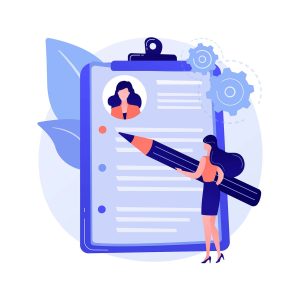Notebook of Guidance for Foreign Worker Migration to Ontario
If you face any issues with your employer, here’s what you can do:
 Contact a Social Agency
Contact a Social Agency- Reach out to the Workers’ Support Organization
- Consult with a Legal Social Clinic
- Call the hotline at 1-888-366-0914 (Foreign Workers’ Association)
If you believe your employer has violated employment standards or if you have a complaint, you can contact the Ministry of Labour Employment Standards Information Center at the phone number 1-800-531-5551.
When presenting a legal claim against the employer, be sure to have records that assist in substantiating your claim, including:
- The hours you have worked
- Break times
- Your wage amount
- Any instances where you felt unfairly treated.
Safety and Health Concerns:
If you have questions about workplace health and safety or if you want to report an issue, please contact the Ministry of Labour’s Health and Safety Center at the number 1-877-202-0008.
If your life is in danger, call 9-1-1.
How can I change my employer?
If you want to change your employer, keep the following in mind:
- Your new employer must have a positive Labour Market Impact Assessment (LMIA).
- Look for a new job. The official job bank of the Canadian government’s website can be a good place to search for jobs that may qualify for a positive LMIA.
- You need to request a change in your work permit from your new employer.
Important: Your new employer must pay for the LMIA. It is illegal for employers to charge you for this.
Note: If you have an open work permit, you can work for any employer and change your employer at any time.
Can my employer take my passport or identification documents?
No.
If my employer terminates me, what are my rights?
If you have been employed for 3 consecutive months or more, your employer must:
- Provide you with written notice in advance, or
- Pay your wages in lieu of notice, or
- A combination of both.
However, if you have:
- Complained about health and safety violations,
- Refused to perform unsafe work, or
- Reported these issues to the Ministry of Labour,
In such cases, your employer is not allowed to terminate you. If your employer does not provide you with an ROE (Record of Employment), you can contact
1-800-622-6232.
Keep in mind that you can stay in Canada until the end of your work permit duration.
Can employers charge me recruitment or administrative fees?
In Ontario, it is illegal for employers to charge you any fees for the following services:
1- Job placement assistance (recruitment fees)
2- LMIA (Labour Market Impact Assessment) applications
3- Interviews
4- Assistance in finding a job
5- First aid training
6- Assistance in finding housing
Filing a claim for unlawful fees:
- Collect supporting documents such as copies of contracts, receipts, or work records.
- You can write a letter to your employer or hiring agency, requesting the return of the money you paid up to a specific date.
- You can file a complaint with the Ministry of Labour up to 3 and a half years after paying the fees.
Am I entitled to join a union or participate in collective bargaining?
Yes.
Can I study while working in Canada?
You can only participate in non-credit courses that are less than 6 months in duration.
Can I apply for permanent residency?
Typically, only workers in managerial, professional, and high-skilled occupations qualify for Canada’s economic immigration programs. Some of the major immigration programs in Canada include:
- Provincial Nominee Program
- Canadian Experience Class
- Federal Skilled Worker Program
Can I keep a copy of the contract for myself?
Yes.
Important: If you believe your employer is not paying your wages, contact the Ministry of Labour.
Deductions from your wages may include:
- Income Tax: Federal and provincial income taxes based on your earnings.
- Canada Pension Plan (CPP): Monthly benefits for workers in retirement.
- Employment Insurance (EI): Temporary financial assistance if you lose your job.
How many hours am I expected to work per day?
You are expected to work 8 hours per day. If you work more than 44 hours per week, you are entitled to overtime pay at a rate of 1.5 times your regular wages.
How much vacation time can I take?
You are entitled to 24 consecutive hours of vacation every week and 48 consecutive hours of vacation every two weeks. If you work more than 5 hours in a shift, you can take a 30-minute break without pay.
Can I take time off for vacations?
If you have worked with the same employer for 12 months, you are entitled to a minimum of 2 weeks of vacation with pay.
Ontario has 9 statutory holidays annually.
What is employment insurance and how can I apply for it?
Employment Insurance (EI) is temporary financial assistance for individuals who:
- Have lost their jobs.
- Cannot work due to illness, childbirth, or childcare.
- Cannot work because they are caring for someone who is dying.
- Are using maternity or parental leave.
You can apply for EI through two methods:
- Visit a Service Canada center within 4 weeks of your last working day.
- Apply online.
For this, you need to provide the following documents:
- Proof of residence address.
- Your mother’s last name before marriage.
- Social Insurance Number (SIN).
- Information about your job.
- Banking information.
- Work permit.
- Immigrant workers who haven’t received EI benefits can apply for reconsideration.
- Eligible mothers can use up to 15 weeks of EI benefits. This period can be taken between 8 weeks before the newborn’s birth and 17 weeks after the newborn’s birth.
- Each parent can use up to 35 weeks of EI benefits within 52 weeks after the newborn’s birth or adoption.
- Individuals eligible due to a family member’s imminent death can use up to 6 weeks of EI benefits to care for that person.
- Those unable to work due to illness can receive up to 6 weeks of EI benefits.
You can obtain more information about Service Canada by calling 1-800-206-7218 or visiting the Service Canada website.
What is my medical coverage?
Your employer is responsible for providing private health insurance for the first 3 months of your residence in Canada. After 3 months, you become eligible for Ontario Health Insurance Plan (OHIP) coverage.
- As soon as you enter Canada, you should familiarize yourself with the details of your private insurance. You don’t need to be ill to get this information, and private insurance often has exceptions. For example, some insurance may not cover pregnancy-related expenses or pre-existing conditions.
Where can I get medical help?
If you need medical help, you can contact:
1- Emergency Medical Services (EMS): Dial 1-1-9 in case of medical emergencies.
You can also seek medical assistance from:
2- Family doctors: Primary healthcare providers who can address a wide range of health concerns.
3- Walk-in clinics: Healthcare facilities where you can receive medical attention without an appointment.
4- Community Health Centres (CHC): Local healthcare centers that offer various medical services.
5- Telehealth Ontario: A phone service providing medical advice from registered nurses.
6- Hospitals: Facilities equipped to handle more severe or urgent medical issues.
7- Local healthcare services: Additional medical services available in your region.
Always remember to call 1-1-9 in case of emergencies.
Here are some things you can do to take care of yourself:
- Maintain a healthy diet: Consume nutritious and balanced meals.
- Incorporate regular physical activity: Include activities unrelated to work in your daily routine.
- Establish a regular sleep schedule: Ensure you have a consistent sleep routine.
- Engage in activities you enjoy during downtime: Pursue hobbies or activities that bring you pleasure.
- Learn something new: Challenge yourself to acquire new skills or knowledge.
- Stay connected with family and friends: Maintain communication with your loved ones.
- Make new friends: Seek out and connect with new people for conversations and interactions.
- Find like-minded groups: Join social or interest groups that share your beliefs.
- Join a social or sports team: Participate in group activities or sports teams.
- Avoid unhealthy habits: Limit or quit alcohol, smoking, and other unhealthy practices.
Do I have to take occupational health and safety training?
You need to obtain basic training in occupational health and safety on these topics:
1- Your duties and rights under OHSA
2- Duties of employers and supervisors under OHSA
3- Common workplace hazards and occupational diseases
4- Roles of committees and representatives in health and safety under OHSA
5- Roles of the Ministry of Labour, Workplace Safety and Insurance Board (WSIB), and health and safety associations
6- Requirements of the Workplace Hazardous Materials Information System (WHMIS) regulations.
9 common questions for employers about health and safety:
1- What are the occupational hazards in my job?
2- Are there any other hazards I should be aware of?
3- Are safety and health meetings held?
4- Are there usable safety equipment? Will I receive training on how to use it? When?
5- Will I receive training for emergencies (such as fires or chemical spills)? When?
6- Where are the fire extinguishers, first aid kits, and other emergency equipment stored?
7- What should I do if I get injured? Who is responsible for first aid?
8- What are my health and safety responsibilities?
9- If I have questions about health and safety issues, who will provide answers?

